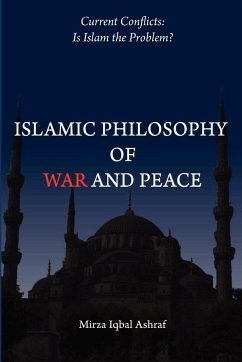Islam means "peace" and "submission to God." With its ethical system of instruction for a balanced life based on faith and reason, how did this "religion of peace" come to be feared? After the 9/11 tragedy, Islam was judged by many in the West to be a hub of terrorism and a threat to world peace. People everywhere voiced concern over its concepts of war and Jihad. Ashraf traces these and related concepts from their inception in Qur'anic injunctions and the Prophet's precepts to their current interpretation, evaluating them in their spiritual, moral, juridical, and cultural contexts. Misunderstandings about Islam lie at the core of much bitterness and violence. With no central authority to definitively interpret its teachings, misconceptions regarding Islam's ideology of war and peace abound. To label Islam as militant is to misinterpret jihad as simply a call to war and to ignore its laws governing warfare, which emphasize restraint as far as possible. Islamic Philosophy of War and Peace explains the spirit of Islam, its mandate for peace, and what the pluralistic notion of jihad stands for in the hope that clearing up ambiguities will foster peaceful relations between Muslims and the rest of the world.
Hinweis: Dieser Artikel kann nur an eine deutsche Lieferadresse ausgeliefert werden.
Hinweis: Dieser Artikel kann nur an eine deutsche Lieferadresse ausgeliefert werden.








